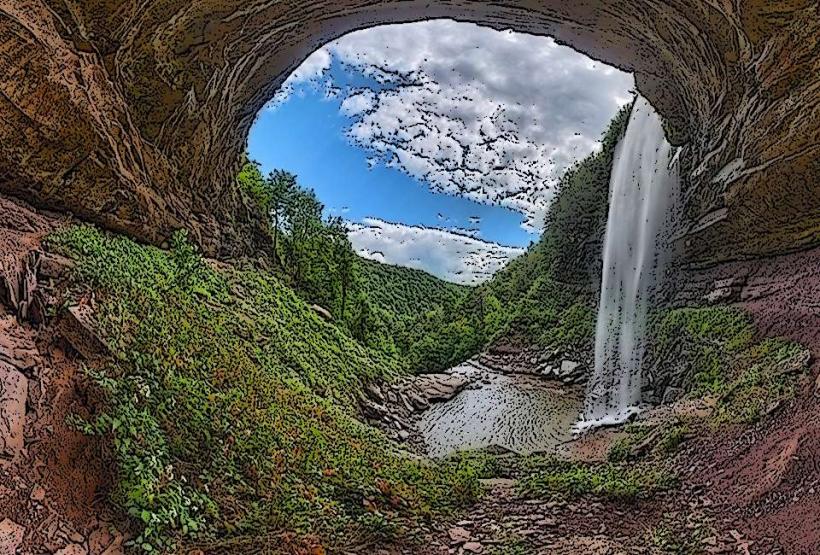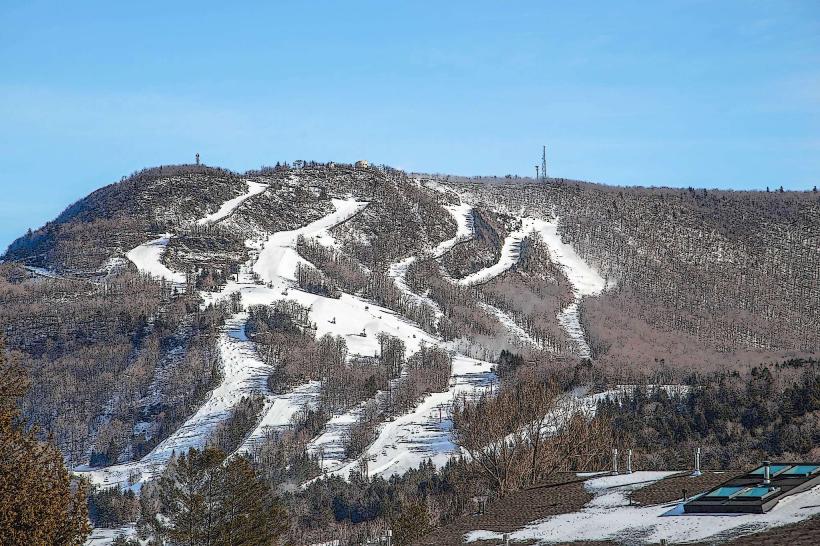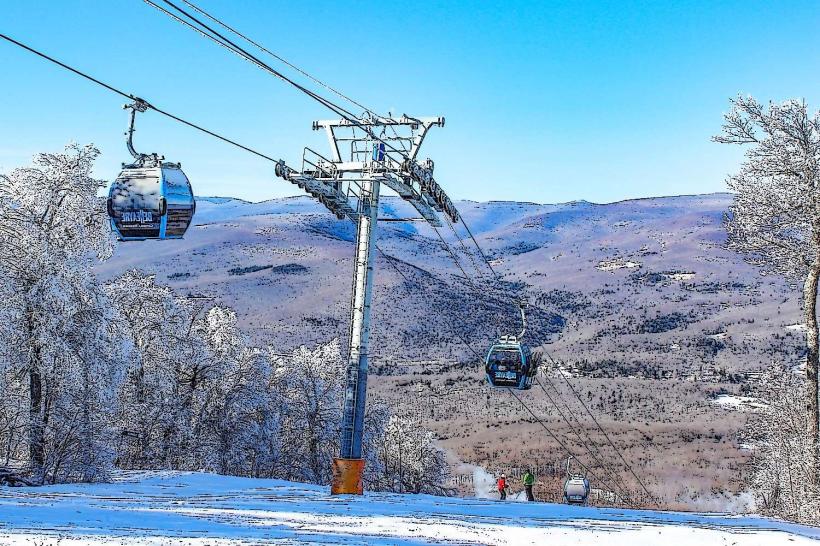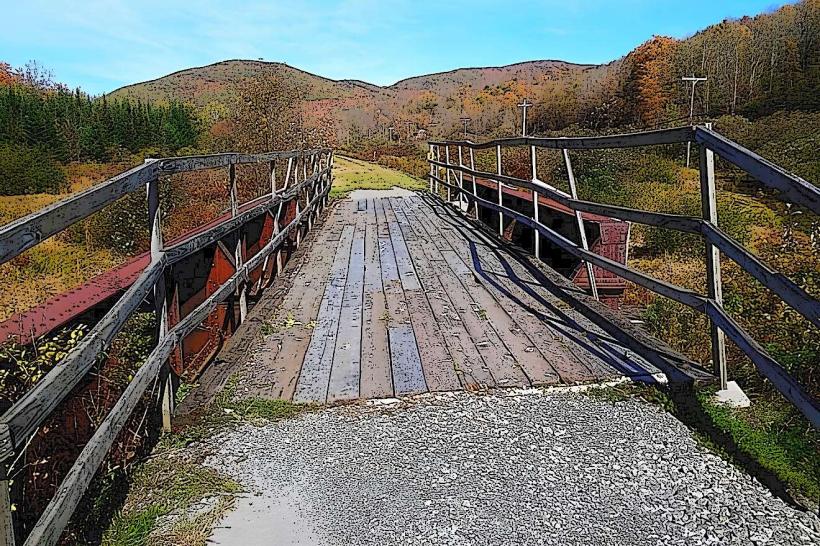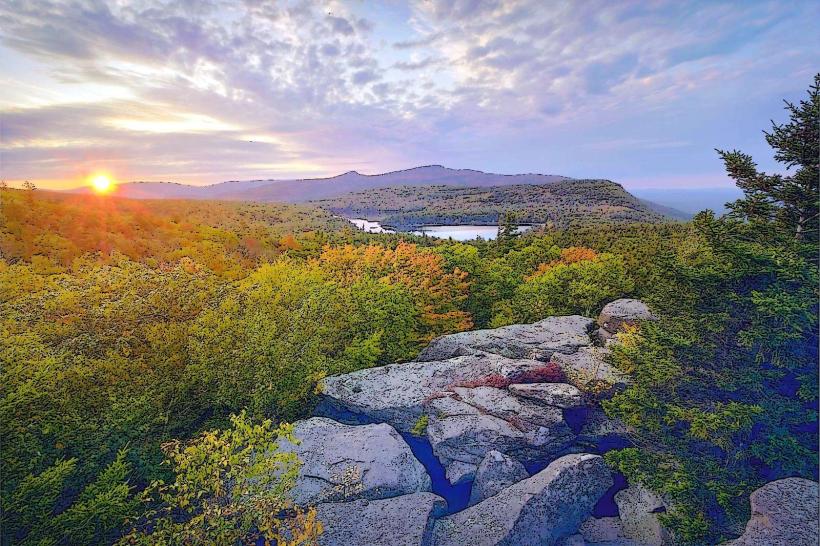Information
Landmark: Slide MountainCity: Catskills
Country: USA New York
Continent: North America
Slide Mountain, Catskills, USA New York, North America
Slide Mountain - Detailed Overview
General Information
Slide Mountain is the highest peak in the Catskill Mountains of New York State, reaching an elevation of 4,180 feet (1,274 meters). It is located within the Slide Mountain Wilderness Area, which is part of the Catskill Forest Preserve. The wilderness area covers more than 47,500 acres and is the largest protected wilderness in the Catskills, offering pristine natural environments and extensive recreational opportunities.
Geographic and Natural Features
Location: Ulster County, New York, within the Catskill Park boundaries.
Landscape: Slide Mountain features rugged terrain with mixed northern hardwood forests at lower elevations, transitioning to boreal forest species such as balsam fir and red spruce near the summit.
Ecology: The mountain and its surroundings support diverse wildlife, including white-tailed deer, black bear, bobcat, and many bird species like the barred owl and hermit thrush.
Alpine Environment: Above 3,500 feet, the fragile alpine ecosystem requires special protection measures to preserve its rare plants and soil conditions.
Hiking and Trails
Slide Mountain is a popular hiking destination with several trails offering varying levels of difficulty:
Burroughs Range Trail (West Side Route)
Length: Approximately 4.1 miles one way.
Elevation Gain: Around 1,780 feet.
Difficulty: Moderate.
Route: Starts from the Slide Mountain Trailhead on Oliverea Road. The trail passes through mixed forests with some rocky sections, and offers intermittent views. It leads hikers over the summits of neighboring peaks before reaching Slide Mountain’s summit.
Curtis-Ormsbee Trail (East Side Route)
Length: About 2.7 miles one way.
Elevation Gain: Approximately 1,780 feet.
Difficulty: Moderate.
Route: This trail approaches from the Woodland Valley area and is named after two early Catskills hikers who pioneered the trail. It is a well-maintained path with gradual ascents, passing through dense forest and ending at the summit.
Wittenberg-Cornell-Slide Trail (Burroughs Range Loop)
Length: Nearly 10 miles round trip.
Elevation Gain: Around 3,600 feet total.
Difficulty: Challenging.
Route: This strenuous trail connects three major peaks - Wittenberg Mountain, Cornell Mountain, and Slide Mountain - offering hikers panoramic views of the Catskills. This loop is recommended for experienced hikers due to its length and elevation gain.
Summit Experience
At the summit of Slide Mountain, hikers are rewarded with breathtaking 360-degree views of the Catskill Mountains, nearby valleys, and, on clear days, distant peaks beyond the Catskills. The summit area includes a historic plaque dedicated to naturalist John Burroughs, who was inspired by the mountain’s wilderness.
Camping and Wilderness Regulations
Camping: Designated backcountry campsites exist within the Slide Mountain Wilderness. Camping is regulated to protect the fragile environment.
Fires: Campfires are prohibited above 3,500 feet elevation to prevent damage to the sensitive alpine zone.
Seasonal Camping Restrictions: To protect vegetation and wildlife, camping above 3,500 feet is allowed only from December 21 to March 21, during the winter season.
Leave No Trace: Visitors are encouraged to follow Leave No Trace principles to minimize environmental impact.
Access and Trailheads
Main Access Points:
Oliverea Road Trailhead: Located on Route 47, this is the primary western access point for the Burroughs Range Trail.
Woodland Valley State Campground Trailhead: Serves as the starting point for the Curtis-Ormsbee Trail on the east side.
Parking: Both trailheads have parking areas; however, they can fill up on weekends and during peak hiking season.
Trail Markers: Trails are well-marked with blazes and signs, but carrying a trail map or GPS is recommended.
Wildlife and Plant Life
The Slide Mountain Wilderness supports diverse flora and fauna:
Flora: Deciduous hardwoods like sugar maple, beech, and birch dominate lower elevations; higher up, conifers such as balsam fir and red spruce thrive.
Fauna: Common mammals include white-tailed deer, black bear, and bobcat. Birds such as wild turkeys, hawks, and owls are frequently seen.
Conservation: The area is managed to preserve the native ecosystem and prevent habitat disturbance.
Safety and Preparation Tips
Weather: Conditions can change rapidly at higher elevations; hikers should be prepared for cool temperatures, wind, and sudden storms.
Gear: Wear sturdy hiking boots, bring plenty of water, snacks, layered clothing, and a map or GPS device.
Trail Conditions: Check current trail reports as sections can be muddy or icy depending on the season.
Wildlife: Keep a safe distance from wildlife and store food securely.
Visitor Resources
Maps: Official georeferenced trail maps are available from the New York State Department of Environmental Conservation (DEC).
Information: The DEC website provides updates on trail conditions, camping regulations, and wilderness guidelines.
Nearby Facilities: Woodland Valley Campground offers amenities such as restrooms and water, useful for hikers starting from that trailhead.
Slide Mountain offers a challenging yet rewarding outdoor adventure and stands as a centerpiece of the Catskill Mountains, providing stunning natural beauty and an important wilderness experience.

